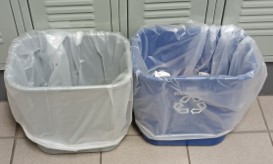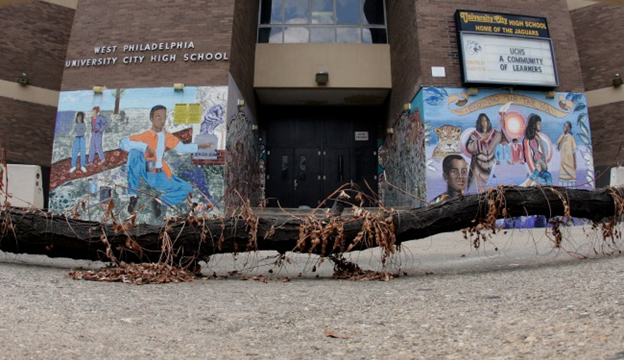Recycling is not as effective and helpful as it is made out to be. The movement is a distraction and is hurting meaningful efforts to curb environmental crises, the real focus needs to be put on holding corporations accountable for their unsustainable practices.
One of the significant appeals to recycling is that anybody can participate, and each small action can build up to a larger positive impact on the environment. There is nothing wrong with this belief, but it needs to be expanded. The current narrative incorrectly says that conservation begins at the consumer level and has shifted any possible accountability away from the corporations that provide cheap products in the first place to everyone else. Statistics show that the global recycling rate currently stands at 9%, a rate far too low to keep pace with plastic production, especially regarding single-use plastics. Meanwhile, 79% of the waste ends up in landfills or the environment at large, and the remaining 12% is incinerated.
How could these numbers be like this? Recycling is much more complicated than it appears. Companies producing plastic products have a multitude of recycling codes on their plastics that are easy to create confusion by overwhelming, and a study found that corporations in the past have falsely put the iconic chasing arrows symbol on products when in reality, the item could never be saved. “Sometimes it is really hard to know what I can and cannot recycle,” says Simon Salinas, a student at Pennridge High School. A lack of any federal recycling puts it up to local communities and individual corporations, where standards and acceptance of items can vary. Plastics can easily become contaminated as well if improperly disposed of alongside non-recyclable items. When this happens, the entire collection gets rejected and thrown away. All this comes together to show that the plastic pollution crisis needs to be properly addressed at the source instead of within the hands of consumers.
According to Kimberly Reese, a teacher, and advisor to Pennridge High School’s Earth Club, “The most pervasive thought is reduce. Reduce what you buy, because anything you buy you are promoting waste from the manufacturer. Reuse is second. Recycling in America has a lot of issues.” Ultimately, just like any pervasive issue, it will take a collective effort from everyone if we want to see more significant change in the benefit of our planet, and that includes businesses at large.
If companies want to try other alternatives to have a greener impact, they may want to consider packaging options such as paper, glass, and metal to cut down on plastics. Recently, there have also been strides in algae-based plastic that biodegrades far faster, along with mushroom packaging that is completely plastic-free. Bamboo products are also a hopeful alternative, as the plant itself grows quickly and can be repurposed into toothbrushes, bowls, paper, and even bedding, to name a few. Recently under the Biden administration, the federal government has laid out a plan to slowly reduce the production of single-use plastics. Businesses can help speed this along by encouraging the sale of items like reusable water bottles and bags.
Sources:
https://stories.undp.org/why-arent-we-recycling-more-plastic
https://www.science.org/doi/10.1126/sciadv.1700782
https://news.climate.columbia.edu/2020/03/13/fix-recycling-america/
https://s3.documentcloud.org/documents/23789593/epa-comments-to-ftc.pdf
https://www.energy.gov/sites/default/files/2021-12/ES_ConsumerGuide_RecyclingCodes.pdf
https://www.epa.gov/recycle/recycling-basics-and-benefits
https://www.npr.org/2020/12/22/946716058/big-oil-evaded-regulation-and-plastic-pellets-kept-spilling
https://perkasieborough.org/departments/public-works/services/trash-recycling/





